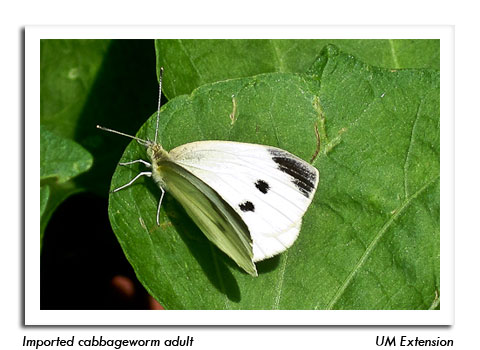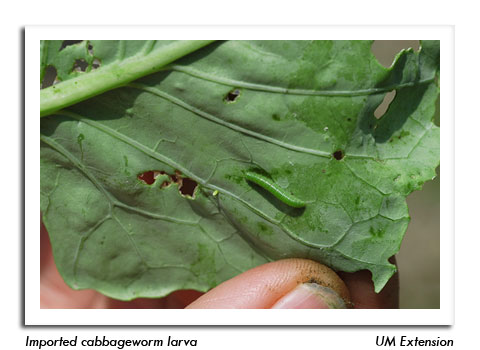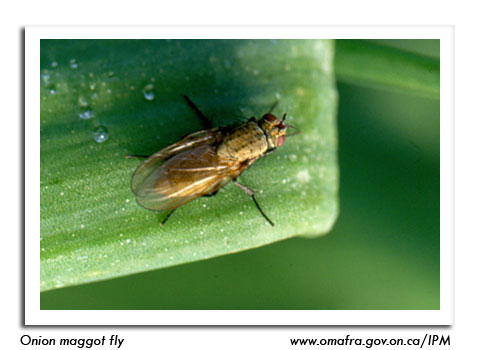
 |
|
|
Vegetables
Volume 60 Number 5 Date 05/21/2015 IMPORTED CABBAGEWORM - Larvae are emerging in advanced southern areas of the state where 300 degree days (simple base 50°F) have been surpassed. Cabbageworms chew large, irregular holes in leaves, bore into heads, and drop brown fecal pellets that contaminate the marketed product. Cole crops can tolerate considerable defoliation at the thinning or transplanting stages, but frequent sampling is recommended to assess populations and to avoid insecticide treatments that disrupt biological control. The biological insecticide, Bacillus thuringiensis (Bt) is very effective against early-instar caterpillars and is an organically acceptable form of control for infestations affecting 30% or more of plants during the transplant to cupping stages. ONION MAGGOT - Peak emergence has occurred in the Beloit, La Crosse, Lone Rock and Madison areas of south-central and southwestern Wisconsin and is anticipated next week across central and southeastern counties, following the accumulation of 680 degree days (simple base 40°F). Flies of the spring generation are often the most abundant and damaging, particularly in fields or home gardens where onions are grown in succession. Rotating this year's plantings as far away as possible from last year's onions is perhaps the most basic approach to onion maggot control. Preventative soil insecticides may be considered if maggot damage to the 2014 crop exceeded 5-10%. -- Krista Hamilton, DATCP Entomologist 


|
|
|